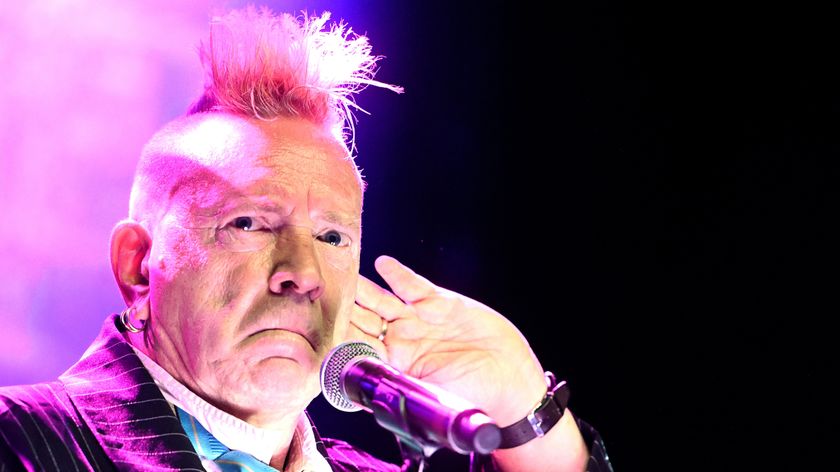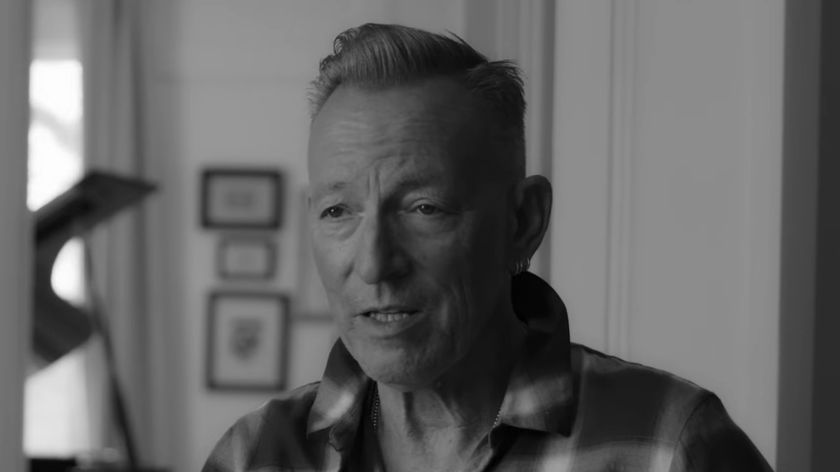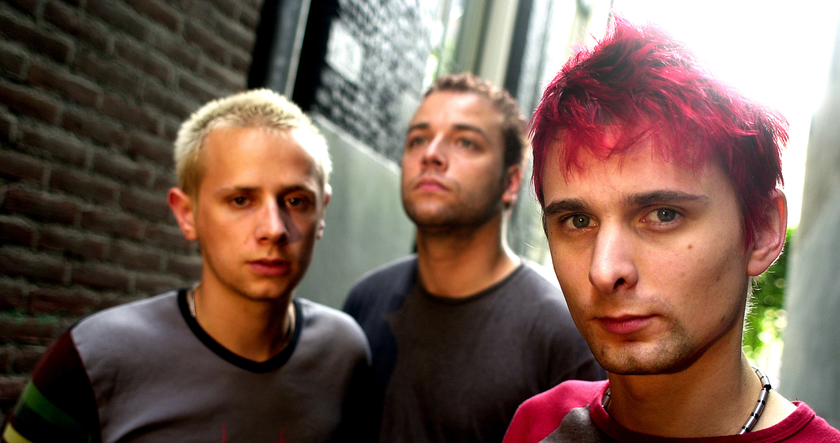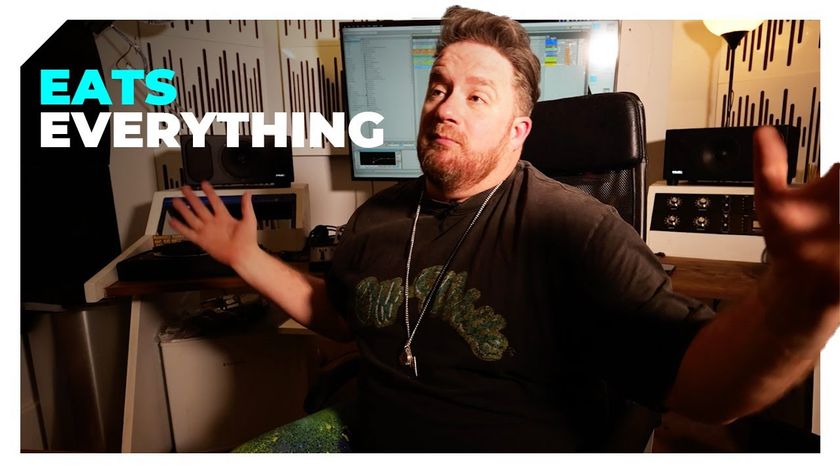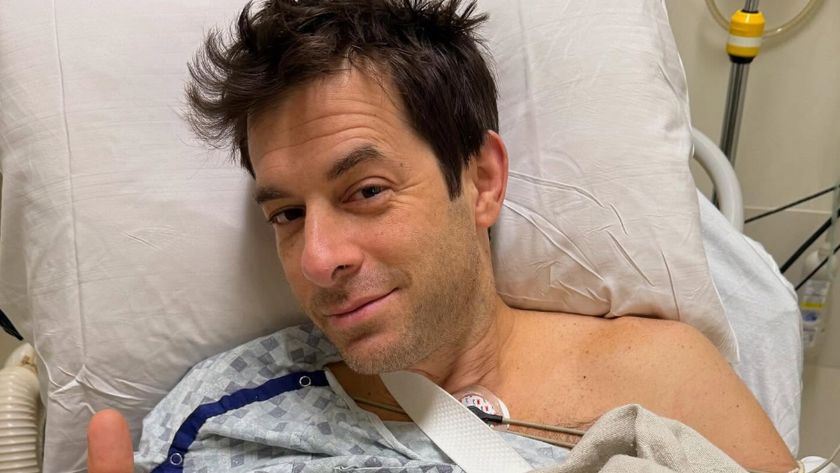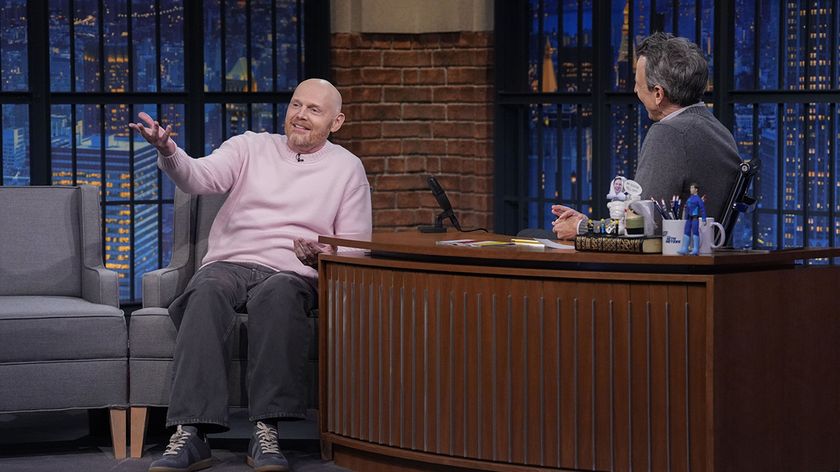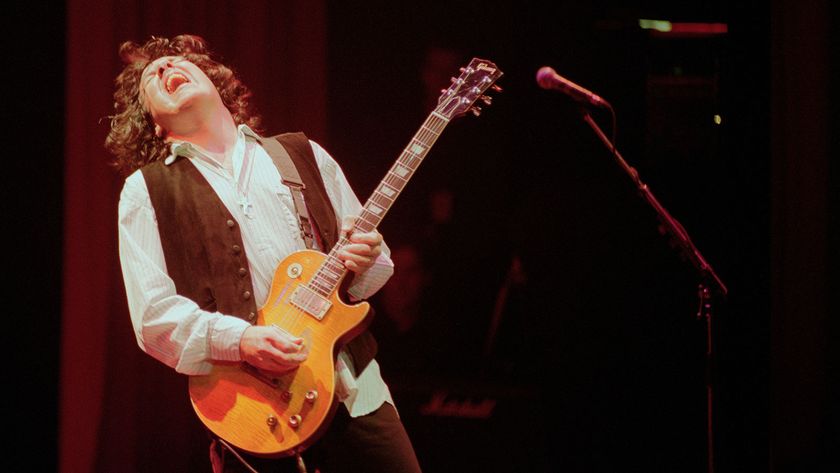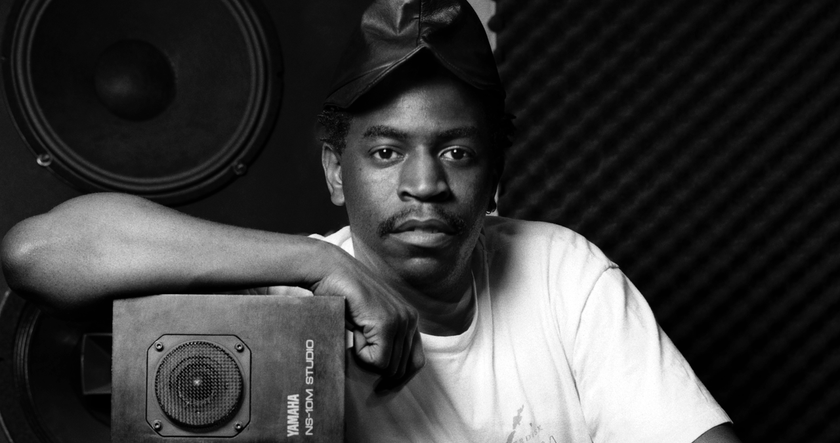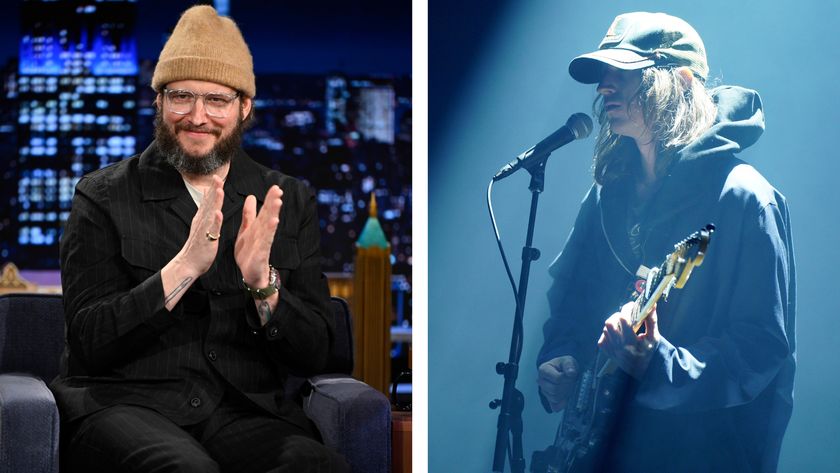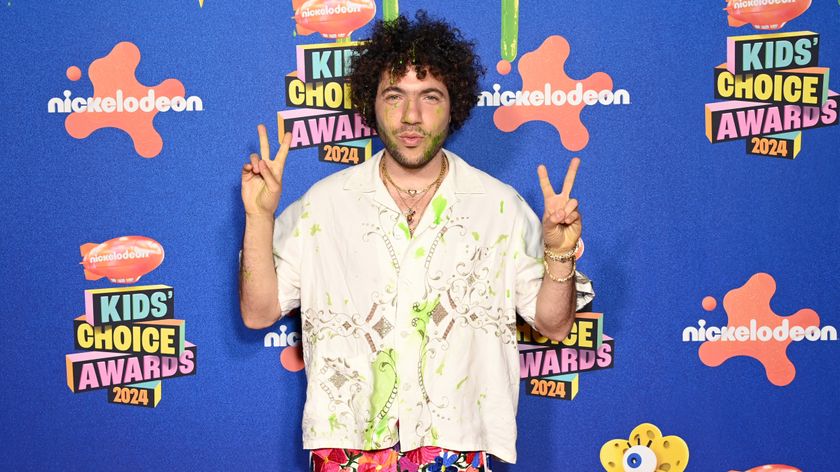Alela Diane: “I am not taking anything for granted - the same goes for being able to share my music”
The folk singer-songwriter on the battles behind Cusp
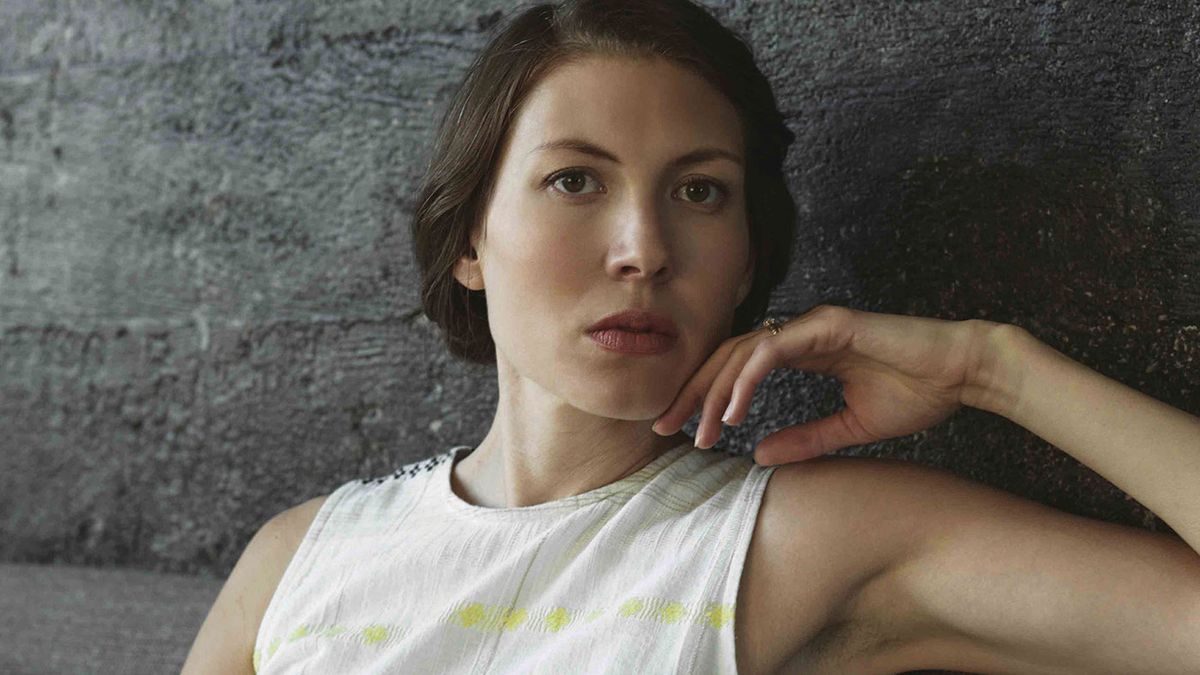
The Portland-based folk musician tells George King why pregnancy, label politics and an eBay-bought Martin made her new album all the richer.
Sex, love and heartbreak are topics never far from the tip of a singer-songwriter's tongue when they first prepare to partner lyrics with melodies. Stories drawing from the joyous miracle and intricate art of childbirth, however, coupled with the trials and tribulations of motherhood, are often neglected by songwriters - despite seemingly having an equally universal appeal.
As soon as [record labels] found out I was pregnant, it was totally off the table. They assumed because I was having a kid, I was obsolete
But maybe this taboo isn't entirely the fault of the artists themselves. When we speak with Portland-based folk musician Alela Diane on the day before New Years Eve, she’s quick to point out that music from female artists is sold based on their sex appeal, and so in the eyes of the industry at least, a female musician becoming and singing about being a mother isn’t exactly marketable - sadly, she knows from experience.
After being dropped by Rough Trade Records after her 2011 album Alela Diane & Wild Divine, Alela found herself without a record label - and the hunt to find a replacement for her critically-acclaimed fourth album, About Farewell, proved problematic for one simple, discriminatory reason: she was pregnant.
“As soon as [record labels] found out I was pregnant, it was totally off the table,'' says Alela. ''They assumed because I was having a kid, I suddenly was obsolete and wouldn't be able to continue working.”
Eventually, Alela released her LP via Rusted Blue Records in July 2013 - four months prior to the birth of her first daughter Vera Marie and over a year after her divorce from her first husband and then band member, Tom Bevitori.
About Farewell
The record unsurprisingly centered on both heartbreak and the turbulent times leading up to the pair’s inevitable departure from one another, and its predominantly stripped-back sound and pondering sense of poignancy, begged to be performed in intimate venues and music halls. But, towards the tail end of her pregnancy, Alela naturally and understandably had to, if for only a few months at least, withdraw from doing any live performances.
Get the MusicRadar Newsletter
Want all the hottest music and gear news, reviews, deals, features and more, direct to your inbox? Sign up here.
You can't be out on the road. But that doesn't mean I didn't intend to keep working and creating
“People think you can't be out on the road - and you can’t. But that doesn't mean I didn't intend to keep working and creating. You still make music and still put out work that is important.”
The music industry has some rather transparent double standards when it comes to a female musician’s exploration of motherhood in song; yet when a male musician embraces the theme of fatherhood they can do no wrong. And as Alela suggests, society’s outdated view that it is the mother who must stay at home with their newborn needs to be eradicated.
“Male artists can have children and they can go on tour more easily, leave the family at home and no one thinks about it all, because women inherently have such an intense role in the child rearing and bearing years. It's the expectation that the women will be at home taking care of the kids and that's not always the case. It's a lot easier for men to just kind of leave and to separate those two things,” Alela says.
Following the birth of Vera, 34-year-old Alela granted herself a year-long musical sabbatical, before returning to the studio as part of a collaborative effort with fellow Portland folk artist, Ryan Francesconi.
The writing and recording process of the pair’s release, Cold Moon, saw Alela take somewhat of a back seat, as she eased her way back into being a musician and prepared to juggle for the first time her work and her newly-acquired domestic lifestyle. Despite writing the entirety of the record’s lyrics and melodies, she assures me, perhaps rather modestly, that her involvement was minimal.
“At the time, that was about all I could do,” she states. “I only really made half of a record and there wasn't that much on me - Ryan wrote all the music.”
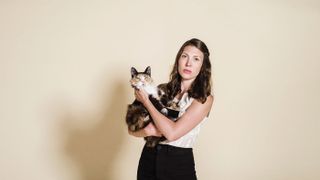
On the Cusp
Nonetheless, the project succeeded in requenching Alela’s thirst for making music and after the album was finished, she felt her “own music and songs” starting to come back to her.
Her altered perspective of life, motherhood and the changes she had experienced over the past 12 months - as well as performing in Paris on the same evening as the Bataclan massacre - had resulted in both a newfound voice, experiences to reflect on and topics to write about; Alela’s sense of purpose as a musician had been reinstated.
For me to create, there needs to be space. My songs were able to come out of that like a form of healing
But in order for these emotions and stories to materialise into fully formed songs and make the 11-song tracklisting for her latest album Cusp, Alela had to isolate and remove herself from the creatively sparse, and at times tense environment by which she had been consumed by since becoming a mother. So, in January 2016, she ventured to Caldera, Oregon and spent three and a half weeks in a snow-surrounded cabin by herself, with only a grand piano for company.
“For me to create, there needs to be space,” she acknowledges, cracking a wry smile as she does so. “It was really relaxing and wonderful and it was an extremely nurturing time for my whole self. My songs were able to come out of that like a form of healing and I just needed some time to come back to myself and to find my creativity again.”
Shortly after returning from her writer’s get-away, Alela conceived again. She was about to head into the studio but there was nothing to worry about in that respect: headed by Pete M. Murray, the recording process was a breeze - the ‘easiest record’ she’s ever had to make.

Unlike other, more dictating producers Alela admits to having worked with, Peter was able to rid her of any well worn habits and his democratic approach allowed Alela to work more off of her own intuition, ultimately making for a more flawless and smooth experience. The birth itself, however, was far from straightforward.
When you feel your mortality so intensely like I did, it just makes you appreciate everyday so much more
On the very weekend that Cusp was mixed in Los Angeles, Alela prematurely went into labor, giving rise to severe and near-fatal complications and culminating in a near-death experience.
“I had something similar to preeclampsia and I nearly bled to death,” she nonchalantly states. “So, it was a really lovely time for me, but when I did live and my life was saved and when you have a moment in life when you feel your mortality so intensely like I did, it just makes you appreciate every day so much more and I am not taking anything for granted - and the same goes for this experience of being able to share my music.”
Being her first solo output since becoming a mother, Cusp has Alela’s trademark autobiographical stamp, and inspects every aspect of motherhood and the yo-yoing emotions that can come with it. Its soundscape and lyrical content are as tender as they are harrowing, as Alela surveys a whole manner of topics for the first time through the lens of a mother; from death by childbirth, to how the international refugee crisis is impacting Syrian toddlers. But perhaps the most compassionate moment is when Alela’s reflection of her frequently complex relationship with her own mother, gives birth to a revelation.
“I think the thing that has changed is that I understand where she was coming from as my mother and I understand that having children is extremely challenging. There is a line in that song that says 'I never knew how much you loved me' because I had no idea to what extent a mother can love their children and it's not a two way street. My kids do not probably love me as much as I love them - and that's painful.
Gear box
“I'm currently playing two acoustic guitars - a 1973 Martin 00018 and the guitar I keep at home is a 1950 Martin 018. I like them a lot and they are nice guitars. I got the ’73 from eBay when I first started touring a lot and I put a pickup in it. I used to wear big belt buckles though, so the back of it has a really nice belt buckle wound on it, which I feel bad about, but it still plays really well.”
Alela Diane’s fifth album Cusp is out now.


